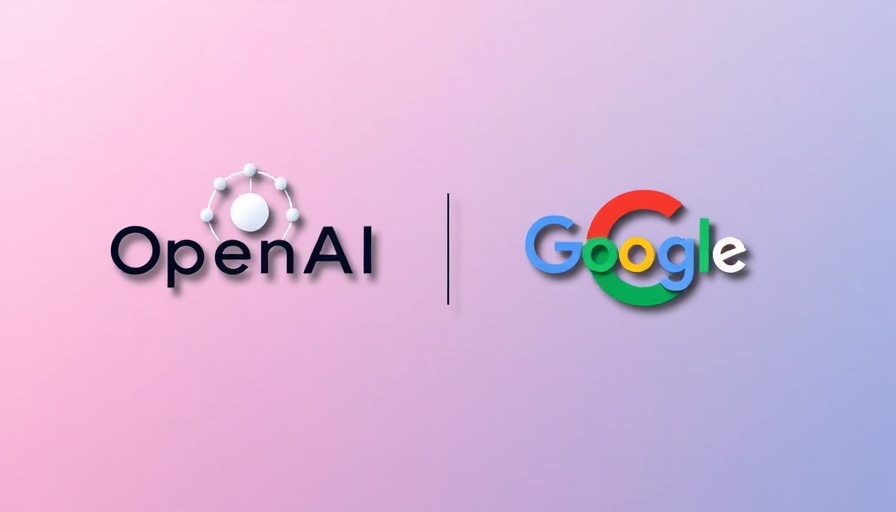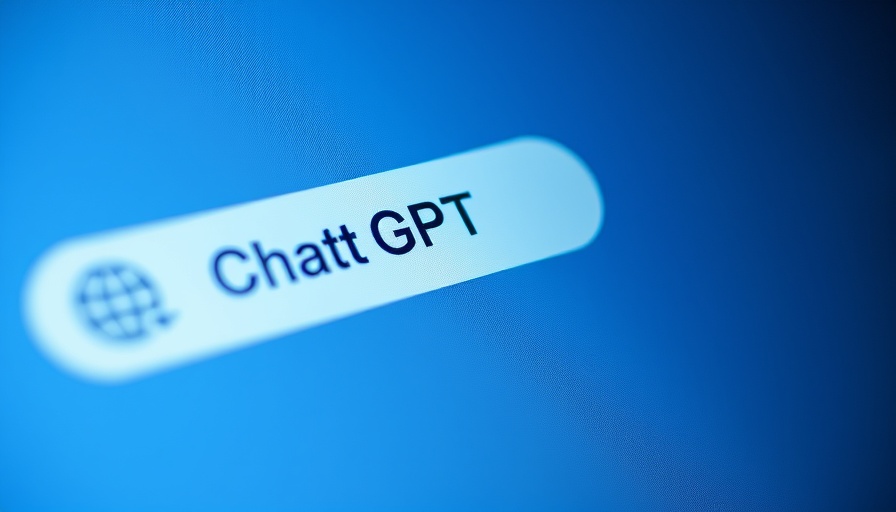
OpenAI’s Surprising Alliance with Google: A Game Changer?
In an unexpected twist in the competitive landscape of artificial intelligence, OpenAI has forged a deal with Google, marking a significant partnership between these two tech titans. This alliance comes as OpenAI looks to bolster its computing capabilities, essential for managing the increasing demands of AI model training.
Unpacking the Deal: What's in it for Google?
Although specifics remain under wraps, the partnership could provide a significant boon for Google Cloud. Historically, Google's cloud segment generated $43 billion last year, contributing to 12% of the company's total revenue. By attracting OpenAI as a customer, Google could see that revenue grow exponentially, revitalizing its cloud services in the increasingly competitive AI sector.
Why Google? The Shift from Microsoft
OpenAI's pivot towards Google Cloud comes after a period of heavy reliance on Microsoft’s Azure as its exclusive cloud provider. Citing delays and limited computing availability, OpenAI's CEO Sam Altman emphasized the need for diversification. This shift towards Google, as well as signing a considerable deal with CoreWeave, suggests that OpenAI is aiming to mitigate risks related to over-reliance on a single cloud provider while still maintaining a productive relationship with Microsoft.
OpenAI and Google: A Cooperative Rivalry?
Interestingly, while OpenAI's ChatGPT represents a substantial competitive threat to Google’s search dominance, this new collaboration might imply a more subtle alignment. As both companies continue to innovate, insights from this partnership could lead to collaborative developments, potentially enriching the competitive landscape within AI.
The Downtime Dilemma: Can Google Cloud Handle the Pressure?
A major consideration in this deal is whether Google Cloud can manage the heightened demands brought on by OpenAI's massive resource needs. The historical hurdles faced by Google Cloud, particularly regarding resource availability, raise concerns. Existing customers might worry if OpenAI's priority could infringe on their service quality.
The Broader Implications for AI Growth Strategies
Amidst this shifting landscape, the implications for the AI sector are profound. OpenAI has reported a run rate of $10 billion in annual revenue, projecting an increase to $12 billion by the year's end. The unyielding growth in demand for AI tools signals a golden age for AI development, where innovations are expected to surge as competition intensifies.
Your Take: What Does This Mean for the Future of AI?
This partnership sets the stage for future discussions surrounding the ethics and implications of AI collaboration amongst key players. How might this shift influence the trajectory of AI development? Should OpenAI look to diversify further, or is this alliance with Google sufficient?
As we watch this intriguing development unfold, we invite busy entrepreneurs, professionals, and creators to share their thoughts on the repercussions of this partnership. Your feedback could play a critical role in shaping perspectives within this evolving field.
Stay tuned for our weekly AI roundup, where we’ll keep you informed about the latest AI trends, tools, and industry shifts.
 Add Row
Add Row  Add
Add 




 Add Row
Add Row  Add
Add 

Write A Comment